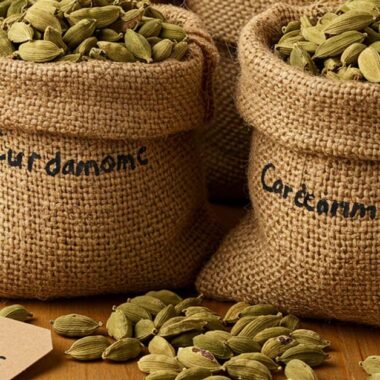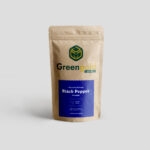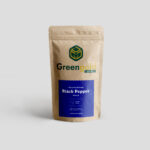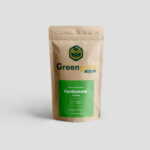Both cardamom and cinnamon are beloved spices that not only add rich flavor to dishes but also offer incredible health benefits. While they both have a warm and aromatic essence, their unique health-boosting properties make them stand out in their own ways. But which one should you choose for optimal health? Let’s dive into the comparison between cardamom and cinnamon, and find out which spice is better for your wellness! 🌟
1. Nutritional Profile 🥄
Cardamom 💚
- Calories: Cardamom is low in calories, with only about 6 calories per teaspoon.
- Vitamins & Minerals: It’s packed with essential minerals like magnesium, potassium, and calcium, along with vitamin C and B vitamins.
- Fiber: Cardamom contains dietary fiber, which supports digestion and gut health.
Cinnamon 🍂
- Calories: Cinnamon is similarly low in calories, with 6 calories per teaspoon.
- Vitamins & Minerals: It’s a rich source of manganese, calcium, iron, and fiber. It also contains small amounts of vitamin K and vitamin A.
- Antioxidants: Cinnamon is packed with antioxidants, which help protect the body from oxidative damage.
2. Health Benefits 💪
Cardamom 💚
- Digestive Health: Cardamom is a powerful digestive aid. It can help relieve bloating, indigestion, and gas. It’s often used to promote a healthy gut and improve appetite.
- Anti-Inflammatory: This spice contains anti-inflammatory compounds that help reduce inflammation in the body, making it beneficial for those suffering from chronic conditions like arthritis.
- Antioxidant Properties: Cardamom is rich in antioxidants, which help fight free radicals and protect cells from damage.
- Detoxification: Cardamom is known for its ability to detoxify the body and promote kidney health.
- Respiratory Health: The spice can help with coughs, asthma, and bronchitis due to its ability to clear the airways.
Cinnamon 🍂
- Blood Sugar Control: One of cinnamon’s most significant health benefits is its ability to help regulate blood sugar levels. It can improve insulin sensitivity, making it beneficial for people with type 2 diabetes.
- Anti-Inflammatory: Cinnamon contains cinnamaldehyde, which has anti-inflammatory properties and can help reduce inflammation in the body.
- Heart Health: Cinnamon is known for its potential to lower cholesterol levels and improve blood circulation, supporting overall heart health.
- Antioxidant Properties: The spice is rich in antioxidants, which help fight oxidative stress and prevent cellular damage.
- Antibacterial & Antifungal: Cinnamon has natural antibacterial and antifungal properties, making it great for immune support and fighting infections.
3. Health Conditions They Help With 🩺
Cardamom 💚
- Digestive Disorders: It’s excellent for conditions like IBS, acid reflux, and constipation.
- Breathing Issues: Cardamom is commonly used to relieve sinus problems, coughs, and asthma symptoms.
- Stress Relief: The soothing effects of cardamom can help reduce anxiety and stress levels.
Cinnamon 🍂
- Diabetes: Cinnamon can be a great addition to the diet of people with diabetes, as it helps in blood sugar regulation.
- Heart Disease: The spice can help lower bad cholesterol (LDL) and prevent heart disease by improving circulation.
- Weight Management: Cinnamon has been shown to help boost metabolism, making it an excellent choice for those aiming to lose weight.
4. Flavor Profile 🌶️
Cardamom 💚
- Taste: Cardamom has a sweet, floral, and slightly citrusy flavor with a touch of spiciness. It is often described as refreshing, making it suitable for both sweet and savory dishes.
- Common Uses: Cardamom is widely used in chai tea, desserts, curries, and baked goods.
Cinnamon 🍂
- Taste: Cinnamon has a warm, sweet-spicy flavor with a subtle earthiness. It is more intense and pungent than cardamom.
- Common Uses: Cinnamon is popular in baked goods, spice blends, curries, hot drinks like mulled wine or cider, and in many desserts.
5. How to Use 🍽️
Cardamom 💚
- Add it to hot beverages like chai tea or coffee.
- Use it in desserts like cakes, cookies, and rice pudding.
- Incorporate it into curries, pilafs, or stews for a rich flavor boost.
Cinnamon 🍂
- Sprinkle cinnamon on oatmeal, smoothies, and fruit salads.
- Add it to hot drinks like coffee, chai, and hot chocolate.
- Use it in baked goods like cinnamon rolls, apple pie, and banana bread.
6. Side Effects and Considerations ⚠️
Cardamom 💚
- Side Effects: Generally safe when consumed in moderation. However, large quantities might cause gastritis or digestive upset in some people.
- Allergies: Some people might have an allergic reaction to cardamom, though it’s rare.
Cinnamon 🍂
- Caution: Cassia cinnamon (the most common type) contains coumarin, a compound that can be harmful in large doses. Stick to Ceylon cinnamon for safe consumption.
- Allergies: Cinnamon can cause irritation in some people, especially when used in excess.
Conclusion 🏁
Both cardamom and cinnamon are fantastic for health, but they offer different benefits depending on your needs. If you’re looking to boost digestion, improve respiratory health, or find a natural breath freshener, cardamom is your best bet. On the other hand, if you want to regulate blood sugar, improve heart health, and get a boost of antioxidants, cinnamon might be the way to go.
Ultimately, incorporating both spices into your diet can provide a balanced blend of flavors and health benefits! 🌿🍂












